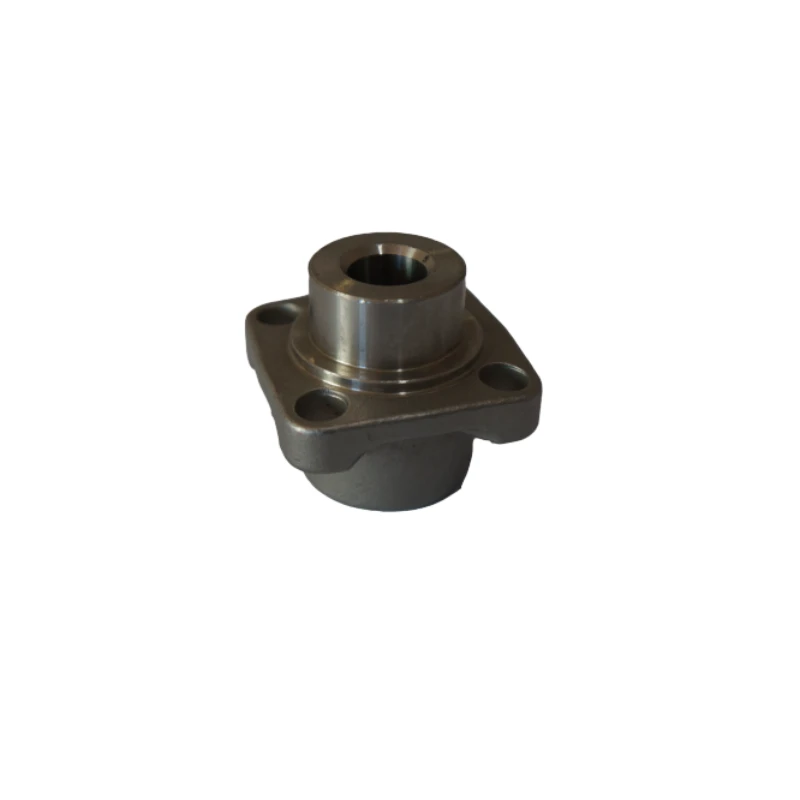precision die casting
Precision Die Casting A Comprehensive Overview
Precision die casting is a manufacturing process widely used to produce complex metal parts with high accuracy and intricate shapes. This technique has gained immense popularity across various industries, including automotive, aerospace, electronics, and consumer goods, due to its ability to deliver quality components while optimizing production efficiency.
What is Precision Die Casting?
Precision die casting involves injecting molten metal into a specially designed mold (die) under high pressure. The die is typically made from steel or iron and is meticulously machined to achieve the desired tolerance levels and surface finish. Once the molten metal solidifies, the die opens, and the finished part is ejected. The process allows for high-volume production of parts that require minimal post-processing, making it a cost-effective and efficient manufacturing method.
Advantages of Precision Die Casting
1. High Accuracy and Tolerance One of the standout features of precision die casting is its ability to produce components with tight tolerances, often within ±0.005 inches. This level of precision is critical in applications where parts must fit perfectly, such as in engines or electronic devices.
2. Complex Geometries Die casting can create parts with complex shapes that would be challenging or impossible to achieve using traditional machining methods. This capability allows for innovative designs and lightweight structures that can enhance product performance.
3. Material Versatility This process is compatible with a wide range of alloy materials, including aluminum, zinc, magnesium, and copper. Each metal has unique properties, enabling manufacturers to select the most appropriate material for the application, balancing strength, weight, and cost.
4. Efficient Production Precision die casting is inherently suitable for high-volume production runs. Once the mold is created, the cycle time for producing each part is relatively short, often ranging from a few seconds to a couple of minutes. This efficiency leads to reduced labor costs and quicker time-to-market for products.
precision die casting

5. Reduced Waste Since the process involves precisely injecting metal into a mold, it generates minimal scrap compared to other manufacturing processes. This efficiency not only benefits the environment by minimizing waste but also reduces material costs.
Applications of Precision Die Casting
The applications of precision die casting are vast and varied. In the automotive industry, it is used to manufacture engine blocks, transmission cases, and other critical components that require high strength and accuracy. Similarly, in aerospace, precision die casting is utilized for parts like brackets, fittings, and housings that must withstand rigorous operating conditions.
The electronics sector also benefits from this process, as it allows for the production of intricate housings and heat sinks for electronic devices, enhancing both performance and durability. Consumer goods such as kitchen appliances and tools also leverage precision die casting for components that need to be lightweight yet sturdy.
Challenges and Considerations
While the advantages of precision die casting are significant, there are also challenges and considerations. Tooling costs for die casting can be high due to the need for complex molds, which may not be cost-effective for low-volume production. Additionally, the die casting process may not be suitable for all geometries; overly complex designs might lead to defects or difficulty in ejection.
Furthermore, controlling the cooling and solidification rates is crucial to ensure part integrity and mechanical properties. Manufacturers must continuously invest in process optimization and quality control to maintain the high standards expected in precision applications.
Conclusion
Precision die casting stands out as a vital manufacturing technology that combines efficiency with high-quality output. Its versatility and ability to produce complex geometries with exceptional accuracy make it an invaluable process in modern manufacturing. As technology advances and industries evolve, the continued innovation in precision die casting is set to expand its applications, driving improvements in product design and production efficiency across the globe.
-
OEM Sand Cast Pump Valve Fittings - Baoding Hairun | Precision Engineering, CustomizableNewsJul.30,2025
-
OEM Sand Cast Pump Valve Fittings - Baoding Hairun Machinery And Equipment Trading Co., Ltd.NewsJul.30,2025
-
OEM Sand Cast Pump Valve Fittings - Baoding Hairun Machinery And Equipment Trading Co., Ltd.NewsJul.30,2025
-
OEM Sand Cast Pump Valve Fittings - Baoding Hairun Machinery|Precision Engineering&Fluid ControlNewsJul.30,2025
-
OEM Sand Cast Pump Valve Fittings - Baoding Hairun Machinery And Equipment Trading Co., Ltd.NewsJul.30,2025
-
OEM Sand Cast Pump Valve Fittings-Baoding Hairun Machinery And Equipment Trading Co., Ltd.NewsJul.30,2025















